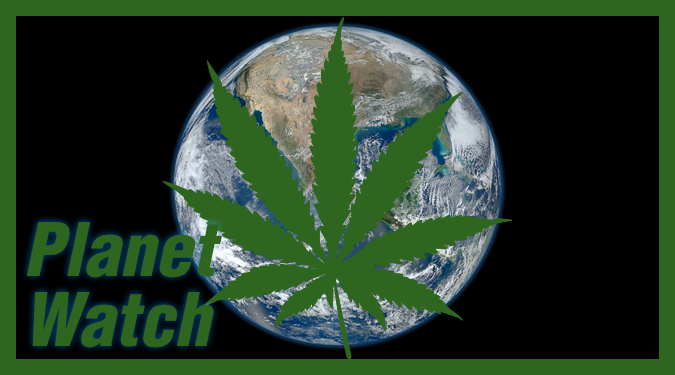 At the annual Vienna meeting of the Commission on Narcotic Drugs, the governing body of the UN Office on Drugs & Crime (UNODC) voted Dec. 2 to strike cannabis from Schedule IV of the 1961 Single Convention on Narcotic Drugs, the global treaty regulating drug control policy.
At the annual Vienna meeting of the Commission on Narcotic Drugs, the governing body of the UN Office on Drugs & Crime (UNODC) voted Dec. 2 to strike cannabis from Schedule IV of the 1961 Single Convention on Narcotic Drugs, the global treaty regulating drug control policy.
The Commission, which includes 53 member states, was weighing a series of recommendations from the World Health Organization (WHO) on reclassifying cannabis and its derivatives. Those recommendations, issued last year, called for removing cannabis from Schedule IV—where it was listed for 59 years alongside dangerous and highly addictive opiates such as heroin.
With this move, the Commission cleared the way for official recognition of the medicinal and therapeutic potential of cannabis by the United Nations.
Who voted how
Among the 27 member states voting in favor of the move was, somewhat surprisingly, the United States. This is something of an historical irony, as it was the US that crafted and pushed for the Single Convention treaty. It was the brainchild of Harry Anslinger, longtime head of the Federal Bureau of Narcotics (FBN), and the architect of cannabis prohibition in the 1930s. The Single Convention was his effort to impose the US prohibitionist regime worldwide.
European Union member states voted as a bloc in favor, joined by India, Mexico, Colombia, Nepal and Morocco—all major illicit producers. Among the 25 voting against were Russia, China, Pakistan, Brazil and Cuba—all authoritarian regimes of either the right or left. The one abstention was Ukraine.
Ecuador, voting to support the move, urged that cannabis production, sale and consumption be given "a regulatory framework that guarantees good practices, quality, innovation and research development."
Voting against, Chile claimed that "there is a direct relationship between the use of cannabis and increased chances of suffering from depression, cognitive deficit, anxiety, psychotic symptoms, among others." Also voting against, Japan asserted that the change "might give rise to negative health and social impacts, especially among youth."
Don't light up a celebratory blunt just yet
It's important to take stock of what the Comission did not do—remove cannabis from Schedule I, the next strictest level of control. The WHO had recommended that cannabis continue to be listed there, citing the supposed "high rates of public health problems arising from cannabis use."
And this is the more operative question where United States law is concerned. The US Controlled Substances Act classifies cannabis along with its psychoactive component THC as a Schedule I substance—despite the fact that THC's synthetic analogue dronabinol has been placed by the Drug Enforcement Administration under the less restrictive Schedule III. The US Supreme Court announced in October that it will not hear a case challenging the constitutionality of classifying cannabis as a Schedule I controlled substance.
So while the vote in Vienna has a great symbolic value, it is unlikely to have immediate practical effect, especially in the United States.
The Commission also rejected a proposal to exempt CBD preparations with less than 0.2% THC from international control.
House passes MORE Act
However, just days after the Vienna vote, on Dec. 4, the US House of Representatives voted to pass the Marijuana Opportunity Reinvestment & Expungement (MORE) Act, which would, in fact, remove cannabis from Schedule I under federal law.
The 228-164 vote to approve the bill was bipartisan, and marked the first time that either chamber of Congress had ever embraced the legalization of cannabis. The bill would remove cannabis and THC from the Controlled Substances Act, and instate a 5 percent tax on sales that would fund community and small business grant programs designed to assist those social sectors that have been most impacted by marijuana prohibition. Critically, it would also expunge prior convictions for cannabis possession.
The MORE Act was introduced last year by Sen. Kamala Harris (D-CA). Legalization advocacy group NORML called it "arguably the most revolutionary and socially conscious federal marijuana reform bill introduced to date."
However, the MORE Act is, for now, is almost certainly facing doom in the Republican-controlled Senate, where GOP leaders are already dissing it as a distraction from the work of passing a pandemic relief package.







Comments
EU court rules CBD not 'narcotic'
House passes MORE Act —again